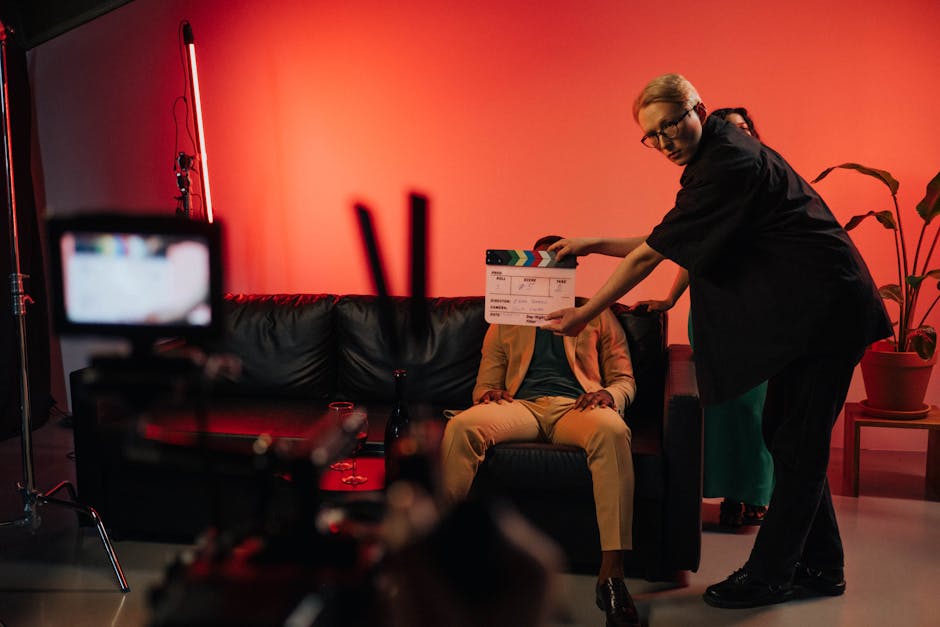Physical transformation is frequently a critical component. Weight gain or loss, intense physical training, or adopting specific postures and movements all contribute to authentic portrayal. Consider Christian Bale’s drastic weight fluctuations for roles like *The Machinist* and *American Psycho*, or Charlize Theron’s intense physical regime for *Monster*. These actors didn’t just change their appearance; they altered their physicality to inhabit their characters’ realities, fundamentally shifting their center of gravity and impacting their emotional states. This isn’t merely about superficial resemblance, but rather about using the physical self to tell the story. The process might involve consulting with trainers, nutritionists, and movement coaches, crafting a bespoke physical preparation plan tailored to the character’s demands.
Beyond the physical, understanding the character’s emotional landscape is paramount. Many actors utilize method acting techniques, delving deeply into their characters’ backgrounds, motivations, and relationships to build an authentic emotional connection. This involves extensive research, potentially including interviews with individuals in similar situations, study of relevant historical periods or social contexts, and immersion in environments evocative of the character’s world. Daniel Day-Lewis, renowned for his dedication to method acting, is a prime example. His meticulous research and immersive preparation have become legendary, resulting in unforgettable performances characterized by remarkable emotional depth and authenticity. However, it is crucial to acknowledge that the intensity of method acting can be emotionally taxing, demanding a keen self-awareness and support network to mitigate potential negative impacts.
Intellectual preparation involves a comprehensive understanding of the script and the character’s place within the narrative. This goes beyond simple line memorization; it involves analyzing the character’s arc, their relationships with other characters, their internal conflicts, and their ultimate goals. Actors often work closely with directors and scriptwriters to clarify ambiguities and gain a deeper understanding of the character’s intentions and motivations. This collaborative process ensures a cohesive and nuanced portrayal that aligns with the overall vision of the film or television project. Furthermore, actors might engage in extensive research into the historical context, cultural background, or relevant social issues related to the character’s story, ensuring a comprehensive understanding of their circumstances.
Vocal coaching and dialect training play an important role, particularly when the character requires a specific accent or dialect. Mastering a foreign accent or a regional dialect adds another layer of authenticity and depth to the character’s portrayal. Actors often work with specialized dialect coaches to refine their pronunciation, intonation, and rhythm, ensuring a believable and seamless delivery of dialogue. This requires dedicated practice and a deep understanding of the phonetic nuances of the target language or dialect.
Developing a strong collaborative relationship with the director is crucial. The director’s vision and interpretation of the script form the foundation upon which the actor builds their performance. Open communication, trust, and mutual respect are vital for a successful collaborative process. The director can offer valuable insights into the character’s motivations, the overall narrative arc, and the desired emotional tone, facilitating a shared understanding and a more effective performance. Rehearsals, both individually and with other actors, contribute significantly to developing the character’s portrayal and refining the performance’s nuances.
Finally, self-care is paramount. The demanding nature of preparing for and performing challenging roles can take a significant toll on an actor’s physical and mental well-being. Maintaining a healthy lifestyle, prioritizing sleep, and incorporating stress-reducing practices like meditation or mindfulness can help actors manage the pressures of intense preparation and maintain their emotional resilience. Seeking support from colleagues, therapists, or mentors is crucial in navigating the emotional and psychological challenges associated with immersing oneself deeply in a challenging role. Understanding the limits of one’s own emotional capacity and prioritizing mental health is not a sign of weakness, but rather a key element of responsible and sustainable acting practice.
In conclusion, preparing for a challenging role in film or television is a complex and deeply personal process. It involves a convergence of physical, emotional, and intellectual preparation, requiring dedication, commitment, and collaboration. The successful actor engages in extensive research, rigorous training, and meaningful collaboration with the director and other actors, all while maintaining a focus on their own well-being. This holistic approach ensures that the final performance is not only technically proficient but also deeply authentic and emotionally resonant, leaving a lasting impact on the audience.
